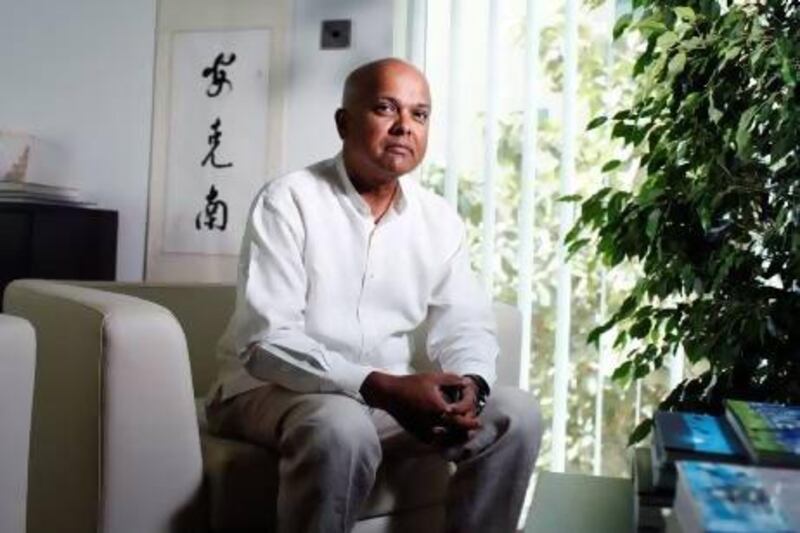DUBAI // India's top football league is asking expatriates to help keep the struggling sport alive in their cricket-mad homeland.
The I-League's organisers will on Saturday ask expats to dig deep for the Beautiful Game and invest millions of dirhams in at least two new clubs.
The All India Football Federation (AIFF) will meet potential investors at Dubai's Ritz Carlton.
"We thought of Dubai because it is close to India and has a large Indian diaspora," said Kushal Das, general secretary of the AIFF.
"We want people to buy into the potential of Indian football. We are confident overseas investors could help to revive the sport."
Ten potential investors have already agreed to meet football officials on Saturday.
The timing could not have been better as the Indian Premier League, the international Twenty20 cricket competition, began yesterday.
One of the 10 possible investors is Amir Mohammed, chief executive of Missan Computers.
"The logic is very simple," Mr Mohammed said. "Football has the maximum viewers around the world.
"Of course, Indians are crazy about cricket. But the fact is every sport is rising in India. Given the fan following for football in India, it has a lot of opportunities."
But he said his company would weigh its options before investing in an Indian club.
"We are very serious about a team but will have to see the costs and if it is the right time," Mr Mohammed said.
There is nothing new about expatriate investment in Indian sports. In 2010, the partly Dubai-funded Rendezvous Sports World paid US$33 million (Dh121.2m) for the IPL's Kochi franchise - the second-highest price ever paid for an IPL side.
And FidelisWorld in Dubai is majority owner of the United Sikkim Football Club, one of the 14 I-League teams. The company said wooing expatriate investors was a "masterstroke".
"People outside of India have a better understanding of what football means and can add value to the sport," said Anand Krishnan, the executive chairman, who will attend Saturday's event to meet new investors.
"There are infrastructure problems but with Fifa ranking India as potential players, the sport is looking good. There are new players from Spain and Australia coming into India.
"There could also be possible exchange programmes between UAE and India in the future. The talent and the infrastructure is fantastic here.
"There is a large subcontinent population and the UAE is the closest market to India."
The federation said it planned to introduce up to four new football clubs, through an open-bidding process starting on April 15.
The winning bidders, who can expect to pay about $20m over five years, will be finalised by the first week of next month, in time to allow new teams to prepare for the season's August start. The I-League was founded in 2006 by the AIFF after the decline of the National Football League.
Although football has always enjoyed a strong following, it is plagued by declining standards, poor facilities and investment, and is overshadowed by cricket.
Mr Das said it was unfair to compare the lucrative IPL cricket league, to the I-League, but conceded the football competition in its current form held little sway over young Indians.
"We wouldn't like to compare with the IPL, be it the model or the money involved," he said.
"If the quality of infrastructure develops and the Fifa ranking goes up, there would be a fair amount of money flowing into the sport.
"The youth of the country watch more football than cricket.
"But they watch the European Football League, not the Indian League.
"The quality of the two products is so different. It is so difficult to get them to watch the I-League."
The federation will require winning bidders to own and operate the club, invest in infrastructure and training grounds, set up their own stadium and invest in youth and grass-roots development.





